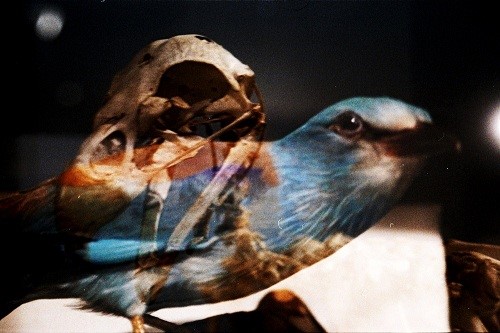 On the table in front of my father the therapist places four random picture cards: a sandwich, hands washing with soap, a baby, and a knife. She wants him to try to remember the pictures. He’s having problems with his memory.
On the table in front of my father the therapist places four random picture cards: a sandwich, hands washing with soap, a baby, and a knife. She wants him to try to remember the pictures. He’s having problems with his memory.
The tumor was more than three centimeters, about the size of a golf ball, sprouting from my father’s pituitary gland. The pituitary is normally pea-sized and dangles from the brain, housed in a cavity in the middle of the skull. The tumor had filled that space and then some, eroding bone in the sinuses. The neurosurgeon said it could have been growing for twenty-five years. An epic of a tumor. The procedure was done transphenoidally, scopes and cutting tools through the nose. Like Roto-rooter, only smaller. Beforehand we joked about my father’s large nose, how there’d be plenty of room to maneuver.
The surgery went well, but that night he had a “brain episode,” and when he woke up, he couldn’t move his right arm or leg. Six weeks later, the arm and leg are back, save a slight shuffle. He can speak and read aloud without trouble, but by lunch he’s forgotten breakfast. When I visit, in the mornings, he asks if I’d been there yesterday.
The trick, the therapist tells my father, is to construct a scenario, a narrative that encompasses all of the pictures. Discrete bits of information are hard to hold on to. Stories we can hold forever. Later, when the therapist takes one of the cards away and shows him only three, my father will remember the part that is missing. This is harder than you’d think. Sure, a knife cuts a sandwich and you should wash your hands before handling a baby, but how could all four possibly go together? Do you need to use the soap on the baby after you smear it with the sandwich? But what about the knife?
To see him after the “episode” was a shock, the pale dullness of his face, the slight droop on one side. His medical condition was officially categorized as “alert,” but he didn’t look it. Sitting in his room, we would kibitz, being cheery in front of him, maybe as some kind of example. They see these kinds of things all the time we were told. There is a progression to look forward to, a series of events heading toward recovery. He’d look around and smile, and be happy to answer any direct question, “How are you feeling?”
“Fine.”
The therapist takes the cards away and replaces them with a worksheet titled “Garden Plot,” the kind of thing second graders do to hone their nascent critical thinking skills. There is a 4×3 grid at the top of the page and then a list of statements: “The beans, needing maximum sunlight, should be placed in the southeastern corner.” My father is having trouble with his memory, but his reasoning abilities are intact, and the exercise could be taken as an insult, considering my father’s reputation as one of the top litigators in Chicago, in the country. But its purpose is simply to distract him from remembering the cards, from forgetting the story he told himself to remember five minutes earlier.
This should’ve been a turning point in my father’s story, the moment we knew he was back on his way to his old self, but in three months time, there will be another tumor, tumors actually, and these will kill him in relatively short order, something I couldn’t imagine in that moment with the therapist, because the worst possible thing had already happened. I never figured that I lacked imagination.
The garden plot completed, the therapist returns three of the four cards to the table. “Which one is missing?” the therapist asks. My father bends his head to his hands and rubs his fingers against his forehead. “You had to ask, didn’t you?” he replies, smiling.
Afterward, during a break in therapy we eat lunch, sandwiches, packed by Mom. “Your father looks pretty stupid,” he says.
“You just need to make the story unforgettable,” I reply. “Like this: The knife is used to stab the baby, after which you wash your hands to keep from getting caught. The sandwich is to celebrate getting away with the crime. Who doesn’t like to celebrate with a good sandwich?”
My father smiles. He’s always approved of my sense of humor, even when it got us in trouble.
The therapist told us how much we looked alike. We both took it as a compliment.
—
John Warner is the author of five books, including his recently released novel, The Funny Man. He serves as editor at large for McSweeney’s Internet Tendency and co-color commentator for The Morning News Tournament of Books, and teaches at the College of Charleston. He was runner up in the Brevity Magazine Bristol Stomp contest.
Photo by Maria Romasco-Moore
